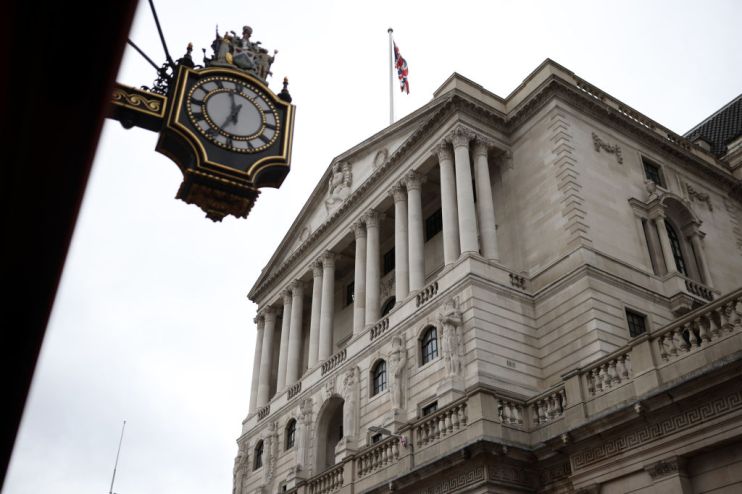Sterling crash: Plenty of blame to go round but much of it falls on the Bank

The British economy has been through a lot in recent years but a full-scale currency crisis still wins points for novelty. But for all the sound and fury of yesterday’s market movements and the so-called sterling crash, the panic is overdone.
Much of the blame for yesterday’s excitement lies, rightly, with the government. This newspaper perhaps more than any other welcomed what was a radical step forward in tax reductions, but it remains strange that the Chancellor nor the Prime Minister have laid out spending reductions to balance the upsurge in government borrowing. Yesterday’s promise of supply side reform is a step in the right direction but is not sufficient in and of itself.
Of course, the scale of that borrowing remains a high-stakes game of pin the tail on the donkey. The cost to the Exchequer of the energy price guarantee, which last week looked set to be around £150bn across domestic and business customers, may now be some £60bn lower as a result of a quite extraordinary collapse in the gas price yesterday. Anybody who tells you what government borrowing is going to be in a years’ time is guessing, whether it’s a city economist or the official Treasury watchdog.
But much, if not most, of the blame for yesterday’s whipsaw lies at the feet of the Bank of England. The Old Lady’s credibility was already in question after two full years’ of wildly off-beam inflation predictions, errors that were exacerbated by the Kremlin-induced spike in energy prices. Yesterday, Governor Andrew Bailey attempted to set markets at ease with a statement that in his own mind must have mimiced the Euro-saving “whatever it takes” of Mario Draghi back in 2012.
Instead, as one wag put it, he promised he wouldn’t hesitate to pull the trigger on interest rate hikes and whilst promising to wait five weeks to decide. It is our view that a rate hike last night would have appeared a little too close to panic, but effectively ruling it out is equally unwise.
Markets, of course, had their say, knocking the pound back down against the dollar to continue the sterling crash narrative. There will be many with sympathy for the Bank as they respond to a dramatic, and not entirely costed, government intervention. But for now last night’s statement looks another misstep from the central bank.